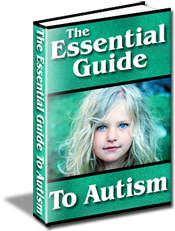Selecting an Autism Diet A Review of Popular Approaches
Click Here To Know The Simple Methods To Effectively Spot The 31 Signs of Autism
Art therapy may be an ideal way to develop social skills, but an autism diet may also be another form of effective treatment. Art therapy is a form of expressive therapy, and like expressive therapy, when it comes to food control, there is more than one type of diet that can be used to treat autism.
Many health practitioners believe that an autism diet may be beneficial treatment. The reason is because most autistics have distorted immune response which causes their body to respond abnormally to certain types of food, viruses and toxins. Furthermore, it is not uncommon for many autistics to suffer from gastrointestinal inflammation and other intestinal disorders. It is thought that these intestinal problems might decrease the body?s ability to absorb specific essential nutrients. Thus, by following a diet and other alternative treatment methods, certain abilities and overall health may be improved in an autistic individual.
The following are 4 autism diets you may want to consider ?
Gluten and Casein Free Diet
Gluten and Casein are both proteins found in many foods which some autistics have a hard time digesting. Gluten occurs in wheat, oat and rye products, while casein is found in human milk, cow milk and many other dairy products. Both of these proteins are also in the ingredients of many medications.
Research has discovered that abnormally high level of specific peptides related to gluten and casein have been found in the urine of autistic children. This could mean that these proteins are not being effectively broken down into amino acids, and this over-absorption of peptide can actually affect brain function. Thus, by removing gluten and casein from the autism diet, this will prevent further gastrointestinal and neurological damage from occurring.
Yeast- Free Diet
Some research is based on the belief that some autistics have high levels of candida albicans (a type of yeast that occurs naturally in the body) in their intestinal tract. A candida overgrowth in the intestines can cause ?leaky gut? syndrome, a condition that causes tiny holes in the intestinal tract. The yeast grows fast and releases toxins in the bloodstream which has the potential to affect brain functioning.
In fact, aside from causing stomach distress, it is thought by some that a candida overgrowth can cause a number of behavioural difficulties such as fatigue, confusion and hyperactivity.
Candida can be controlled naturally through an anti-candida (yeast) diet or with essential oils. In short, an anti-yeast diet involves cutting out all natural and artificial sugars, caffeine, most diary products, preservatives and, of course, yeast products (I.E. bread).
Specific Carbohydrate Diet
This is a science based autism diet, and it involves the cessation of ingesting specific carbohydrates (sugars and starches) that have been found to cause problems within the digestive tract. In addition, carbohydrates are small enough that they can slip by the surface of the small intestine into the blood stream, and can cause abnormal brain function.
This diet limits the amount of carbohydrates ingested and slowly adds them back once the intestinal tract has had time to heal.
Body Ecology Diet (BED)
This particular diet used to treat autism was originally created to treat systemic fungal infections typically caused by Candida overgrowth. It has been used to treat the inflammatory bowel diseases ulcerative colitis and Crohn?s disease, as well as a number of autoimmune diseases and AIDS. Like the other autism diets, the BED works to heal the gastrointestinal system and prevent future infections.
The BED diet involves eliminating gluten and casein from the diet as well as drastically limiting bad fats, carbohydrates and sugars.
It is best to talk to your child?s health care provider to find out which autism diet would be the best course of treatment. It is also important to have your doctor monitor your child?s condition while on a diet treatment. This way you can ask any questions or concerns you may have about the autism diets, and to ensure your child is receiving the sufficient nutrients his/her body requires.
Grab your free copy of Rachel Evans' brand new Autism Newsletter - Overflowing with easy to implement methods to help you and your family find out about autism strategies and for information on autism diet please visit The Essential Guide To Autism.
Labels: abilify_autism, adult_autism, autism_book, autism_disorder_spectrum, autism_mild_sign

